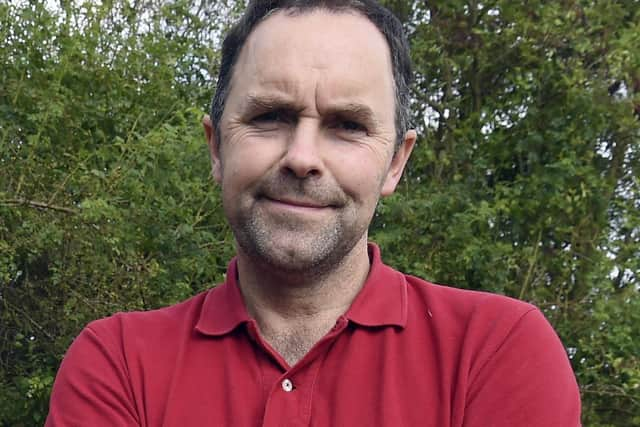Farming: Agritourism boost as short-term let licences put on hold


With agri-tourism businesses playing an increasingly important role in both farm and rural economies across the country, the proposals – which were primarily aimed at addressing the anti-social behaviour encountered in some cities – would have introduced significant additional costs for those with rural and tourist accommodation businesses.
And with livelihoods of many in the sector already suffering due to the Covid crisis, a meeting between the Scottish Government and stakeholders was this week told that the imposition of licence fees as high as £1,000 a year, along with additional planning requirements and red tape, were “completely disproportionate” for such enterprises.
Advertisement
Hide AdAdvertisement
Hide AdWelcoming the pledge to postpone any new regulation until after the May election, Scottish Land and Estate’s Gavin Mowat, said the proposals had not been well targeted: “All forms of accommodation such as self-catering cottages, B&Bs, wooden lodges, yurts and glamping pods would have been included in a licensing regime that’s origins lay in a desire to tackle anti-social behaviour and a lack of available housing in primarily urban areas like Edinburgh.”
Caroline Millar, Scotland’s Agri-tourism lead added: “Although the proposals have not been dropped, the delay until June does signify that there is multi-party feeling that this legislation will have a significant negative impact on tourism, not just the self-catering and B&B sector.”
NFU Scotland vice-president, Robin Traquair said that lobbying had flagged up the serious concerns over the rushed nature of the proposals and lack of information of the impact on many agritourism businesses already suffering due to Covid-19.
Welcoming the change of tack, Traquair said: “Farm diversification into short term lets such as bed and breakfast and self-catering accommodation is a significant source of income for many farms in Scotland.
“They have already been dealt a significant blow by the impacts of Covid-19 and these ill thought out and rushed proposals could not have come at a worse time.”
He said that farm businesses operating accommodation would breathe a sigh of relief that there was now time for more appropriate guidance to be developed and for fuller discussions on the issue.
*However it wasn’t all good news for the sector – with the revelation this week by First Minister Nicola Sturgeon that tourism and hospitality would be closed for Easter and “may” open for summer representing a significant blow to the whole industry.
“The agritourism sector had been hoping for an Easter opening for accommodation but also a range of paid lambing experiences to bring in vital cash,” said Millar.
Advertisement
Hide AdAdvertisement
Hide AdShe said that cash flow for many businesses which had been forced to keep their doors closed to visitors had become a significant issue for many – and said that in many cases it was only the agritourism side which kept farms going.
Comments
Want to join the conversation? Please or to comment on this article.